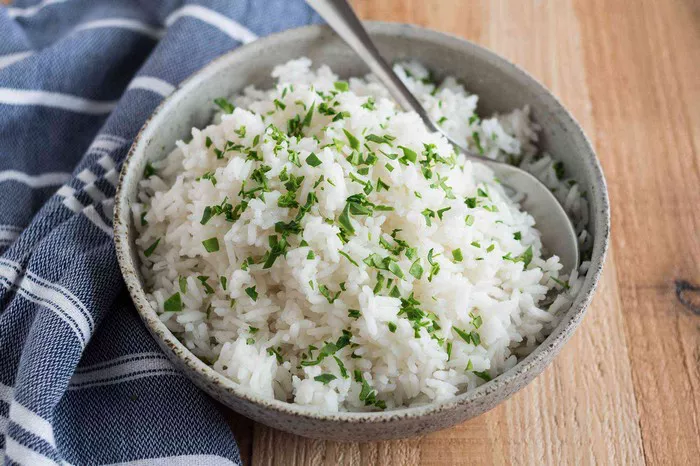Insulin resistance is a critical health issue affecting millions globally. It is a condition in which the body’s cells become less responsive to insulin, a hormone essential for regulating blood glucose levels. This insensitivity hampers the body’s ability to utilize glucose effectively, leading to elevated blood sugar levels and a cascade of metabolic disturbances. Insulin resistance is a precursor to type 2 diabetes and is associated with various health complications, including cardiovascular diseases, obesity, and non-alcoholic fatty liver disease (NAFLD).
The Mechanism of Insulin Resistance
To comprehend insulin resistance, it’s imperative to understand how insulin functions. Produced by the beta cells in the pancreas, insulin facilitates glucose uptake by cells, primarily muscle and fat cells, and inhibits glucose production by the liver. In a state of insulin resistance, these cells fail to respond adequately to insulin, necessitating higher levels of the hormone to achieve the same effect. Over time, this can lead to pancreatic beta-cell dysfunction and eventual type 2 diabetes as the pancreas fails to keep up with the increasing demand for insulin.
The molecular mechanisms underpinning insulin resistance involve a complex interplay of genetic, environmental, and lifestyle factors. At the cellular level, insulin resistance is often marked by defects in the insulin signaling pathway. This can include impaired insulin receptor function, reduced activity of downstream signaling molecules such as insulin receptor substrate (IRS) proteins, and alterations in glucose transporter type 4 (GLUT4) translocation.
Contributing Factors to Insulin Resistance
1. Obesity and Adipose Tissue Dysfunction
Obesity, particularly central obesity, is a significant contributor to insulin resistance. Excess adipose tissue, especially visceral fat, secretes various pro-inflammatory cytokines and adipokines, such as tumor necrosis factor-alpha (TNF-α), interleukin-6 (IL-6), and resistin. These substances interfere with insulin signaling pathways, promoting a state of chronic low-grade inflammation and contributing to insulin resistance.
2. Physical Inactivity
A sedentary lifestyle is another major risk factor for insulin resistance. Physical activity enhances insulin sensitivity by promoting glucose uptake in muscle cells and improving mitochondrial function. Regular exercise increases the expression of GLUT4 and boosts the activity of key enzymes involved in glucose metabolism, thus enhancing the efficiency of insulin signaling.
3. Dietary Factors
Diet plays a pivotal role in the development of insulin resistance. Diets high in refined carbohydrates, sugars, and unhealthy fats can lead to excessive calorie intake, weight gain, and metabolic disturbances. These diets often result in spikes in blood sugar levels, increasing the demand for insulin and eventually leading to insulin resistance.
Conversely, diets rich in fiber, healthy fats (such as those found in nuts, seeds, and olive oil), and lean proteins can improve insulin sensitivity. The Mediterranean diet, in particular, has been shown to have beneficial effects on insulin resistance due to its emphasis on whole grains, fruits, vegetables, and healthy fats.
4. Genetic Predisposition
Genetics also play a crucial role in insulin resistance. Certain genetic variants can affect the function of insulin receptors and other components of the insulin signaling pathway, predisposing individuals to insulin resistance and type 2 diabetes. Family history is a strong indicator, and individuals with a genetic predisposition may need to be more vigilant about lifestyle modifications.
5. Hormonal Imbalances
Hormonal disorders, such as polycystic ovary syndrome (PCOS) and Cushing’s syndrome, can contribute to insulin resistance. PCOS is characterized by elevated levels of androgens and insulin, which can exacerbate insulin resistance. Cushing’s syndrome, caused by prolonged exposure to high levels of cortisol, also leads to insulin resistance and hyperglycemia.
Strategies to Reverse Insulin Resistance
Reversing insulin resistance involves a multifaceted approach that includes lifestyle modifications, dietary changes, physical activity, and, in some cases, medication. Here, we explore evidence-based strategies to improve insulin sensitivity.
1. Weight Loss and Management
Weight loss is one of the most effective ways to improve insulin sensitivity. Even a modest reduction in body weight (5-10%) can significantly enhance insulin action and lower blood glucose levels. Weight loss reduces the amount of visceral fat, thereby decreasing the production of pro-inflammatory cytokines and improving adipokine profiles.
Strategies for effective weight loss include:
- Caloric Restriction: Reducing caloric intake while ensuring nutritional adequacy can lead to weight loss. This involves portion control, mindful eating, and reducing the consumption of high-calorie, low-nutrient foods.
- Balanced Diet: Emphasizing a diet rich in vegetables, fruits, whole grains, lean proteins, and healthy fats. Avoiding sugary beverages, processed foods, and excessive alcohol intake.
- Behavioral Therapy: Techniques such as cognitive-behavioral therapy (CBT) can help address eating behaviors and psychological factors contributing to obesity.
2. Physical Activity
Regular physical activity is crucial for improving insulin sensitivity. Exercise enhances glucose uptake by muscle cells and increases mitochondrial function, thereby improving insulin signaling. Both aerobic and resistance training have been shown to be effective.
- Aerobic Exercise: Activities such as walking, jogging, swimming, and cycling can improve cardiovascular health and insulin sensitivity. The American Diabetes Association recommends at least 150 minutes of moderate to vigorous aerobic activity per week.
- Resistance Training: Strength training exercises, such as weight lifting, can also improve insulin sensitivity by increasing muscle mass and enhancing glucose uptake.
- High-Intensity Interval Training (HIIT): HIIT involves short bursts of intense activity followed by periods of rest or low-intensity exercise. It has been shown to be particularly effective in improving insulin sensitivity and cardiovascular health.
3. Dietary Modifications
Making specific dietary changes can have a profound impact on insulin resistance.
- Low Glycemic Index (GI) Foods: Consuming foods with a low glycemic index can prevent spikes in blood sugar levels and reduce the demand for insulin. Examples include whole grains, legumes, and non-starchy vegetables.
- Healthy Fats: Including sources of healthy fats, such as avocados, nuts, seeds, and olive oil, can improve insulin sensitivity. Omega-3 fatty acids found in fatty fish like salmon and mackerel are particularly beneficial.
- Fiber-Rich Foods: A diet high in fiber slows the absorption of glucose and improves insulin sensitivity. Whole grains, fruits, vegetables, and legumes are excellent sources of dietary fiber.
- Protein Intake: Adequate protein intake can aid in weight loss and improve muscle mass, both of which enhance insulin sensitivity. Lean proteins such as poultry, fish, beans, and tofu are good choices.
- Avoiding Sugars and Refined Carbs: Reducing the intake of sugary drinks, sweets, and refined carbohydrates can prevent insulin spikes and reduce the risk of insulin resistance.
4. Stress Management
Chronic stress can lead to elevated levels of cortisol, a hormone that promotes insulin resistance. Effective stress management techniques include:
- Mindfulness and Meditation: Practices such as mindfulness meditation can reduce stress and improve insulin sensitivity.
- Regular Exercise: Physical activity is a natural stress reliever and can lower cortisol levels.
- Adequate Sleep: Ensuring sufficient and quality sleep is essential for maintaining hormonal balance and insulin sensitivity.
5. Medication and Supplements
In some cases, medication may be necessary to manage insulin resistance, particularly for those who have progressed to type 2 diabetes or have not responded adequately to lifestyle modifications.
- Metformin: A commonly prescribed medication for type 2 diabetes, metformin works by reducing hepatic glucose production and improving insulin sensitivity.
- Thiazolidinediones: Medications such as pioglitazone enhance insulin sensitivity by acting on PPAR-gamma receptors in fat cells.
- GLP-1 Receptor Agonists: These medications increase insulin secretion, decrease glucagon release, and slow gastric emptying, which can help control blood sugar levels and improve insulin sensitivity.
- Supplements: Some supplements, such as berberine, chromium, and alpha-lipoic acid, have been shown to improve insulin sensitivity. However, it is essential to consult with a healthcare provider before starting any supplement regimen.
6. Monitoring and Regular Check-Ups
Regular monitoring of blood glucose levels and periodic check-ups with a healthcare provider are crucial for managing insulin resistance and preventing complications. This allows for timely adjustments in treatment plans and ensures that any emerging issues are addressed promptly.
Conclusion
Insulin resistance is a complex and multifactorial condition that requires a comprehensive approach for management and reversal. By addressing lifestyle factors such as diet, physical activity, stress, and weight management, individuals can significantly improve their insulin sensitivity and reduce the risk of developing type 2 diabetes and other associated health complications. In some cases, medication and supplements may be necessary to achieve optimal outcomes. Regular monitoring and professional guidance are essential components of an effective insulin resistance management plan.
Through informed and proactive measures, it is possible to combat insulin resistance, enhance overall health, and improve quality of life. As research continues to advance our understanding of this condition, new and innovative strategies will likely emerge, offering further hope and avenues for intervention.
Related topics:
What Medicine for Insulin Resistance



























